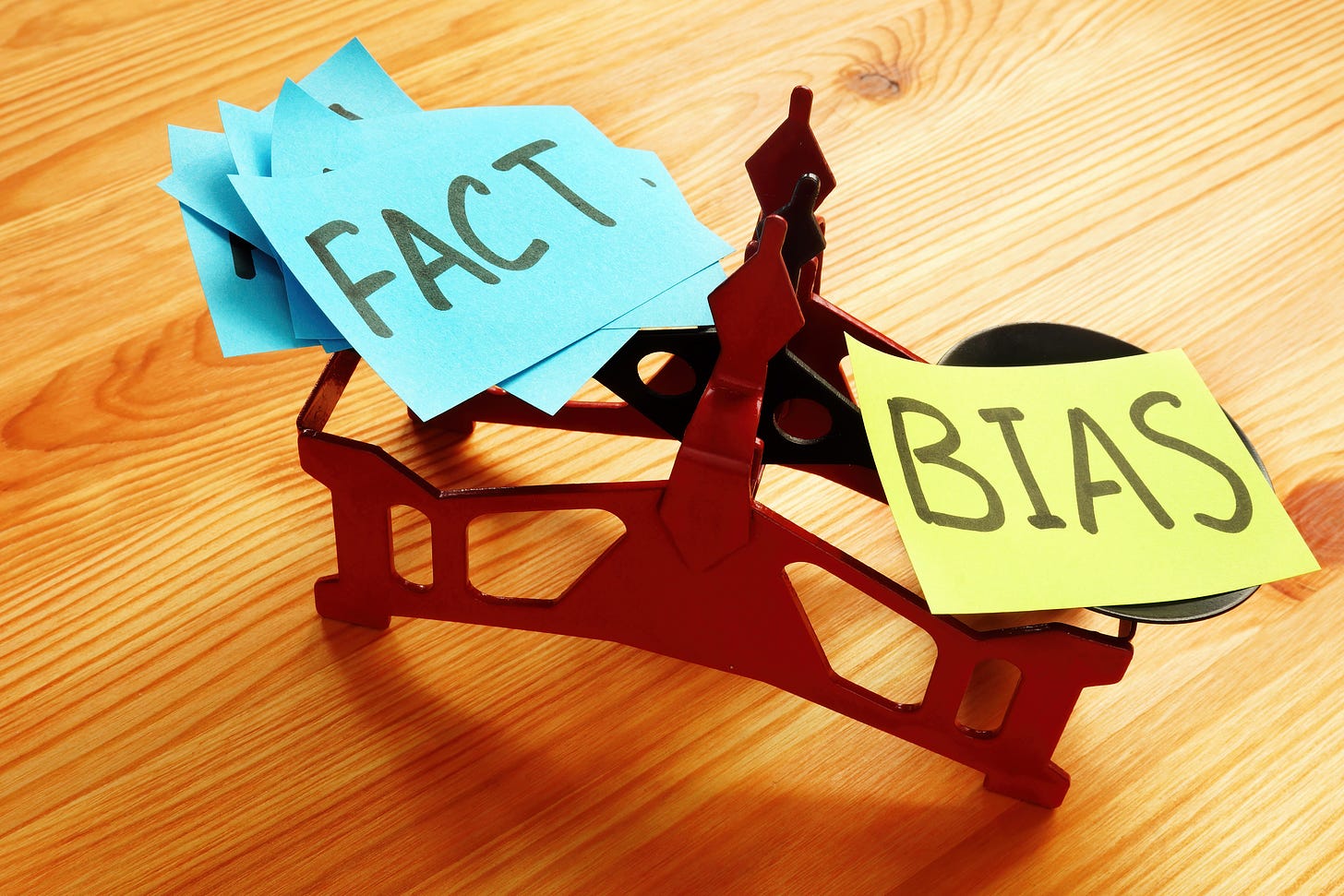A difficult realization came to me recently: that many of my opinions, especially the opinions I form about things I read on-line or hear about from my friends, are often the result, not of a logical assessment of all the facts, but of a kind of confirmation bias.
I hear or see a story. I immediately have a REACTION to that story (what a sexist shit head, or that person is a selfish tool, or that guy is obviously just out for himself - you get the idea). I then I create a more fully formed OPINION not always from having gotten more information, but from my need to codify my initial reaction; I scan the horizon for whatever I can find that supports it. As such, any facts or information that is in opposition of my initial reaction is summarily dismissed as irrelevant or wrong.
If you have been reading my essays you know that I have been trying recently to see the ways in which my view of myself, others and the world has, in the last 10 years especially, been formed more by shit I read on-line than by the actual experiences I have of myself, others and the world.
The indignant pile-up on a person who everyone has decided is the identified problem can be troubling to me. These attacks are more often fueled by our convictions about an issue than by the actual irredeemability of the individual. What I mean is this: if someone is accused of, let’s say, sexual harassment - my opinion of that person and their guilt and the state of their heart and their actual ethics is based more in my distain for and experience of sexual harassment and patriarchal bullshit in general than it is in any actual facts about the person in question. We so often seem to collapse the distinction around our feelings about an issue and the worth and dignity of a person who has been accused of something we loathe and I wonder what it looks like to just take a breath.
Keep reading with a 7-day free trial
Subscribe to The Corners by Nadia Bolz-Weber to keep reading this post and get 7 days of free access to the full post archives.




